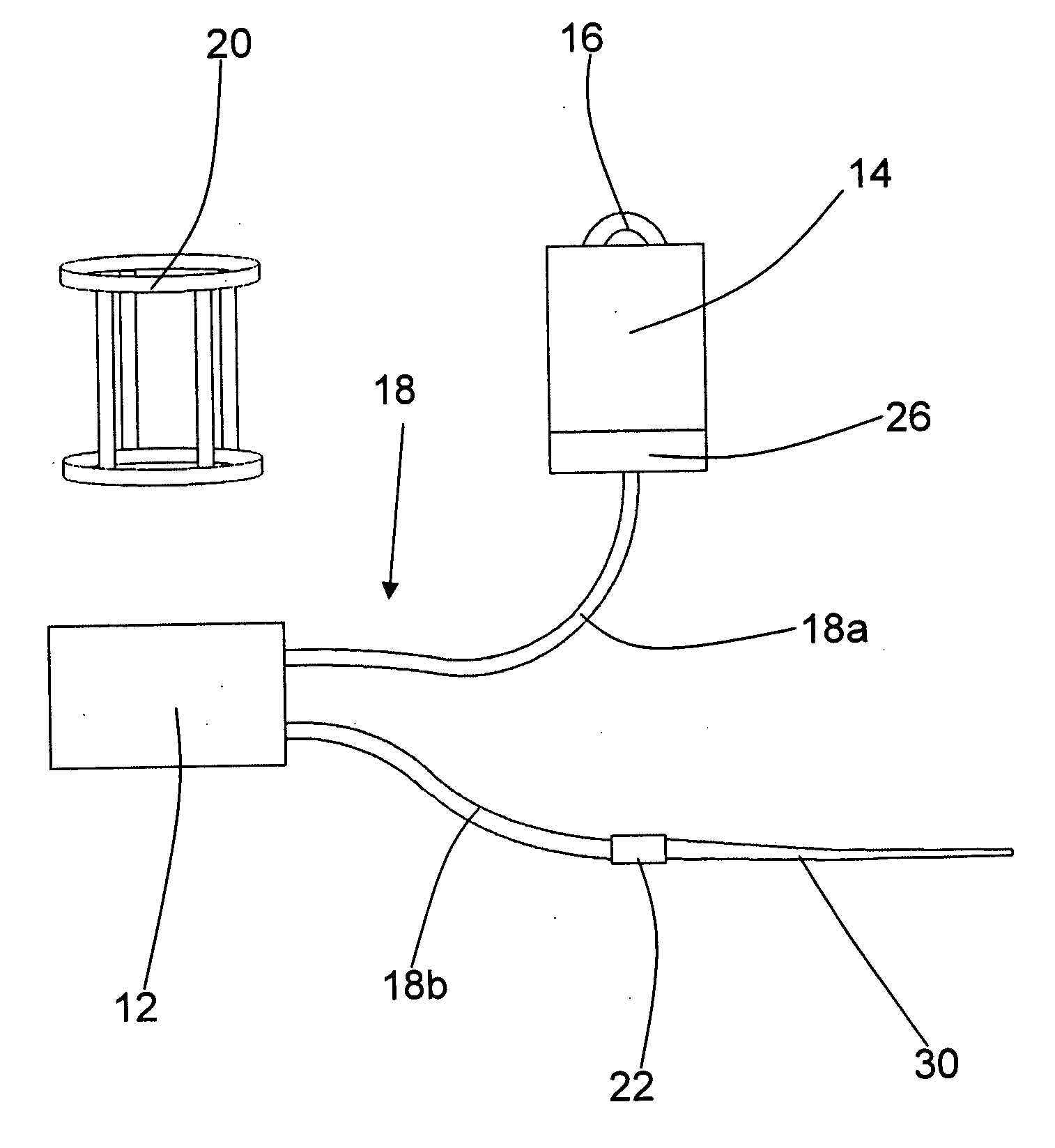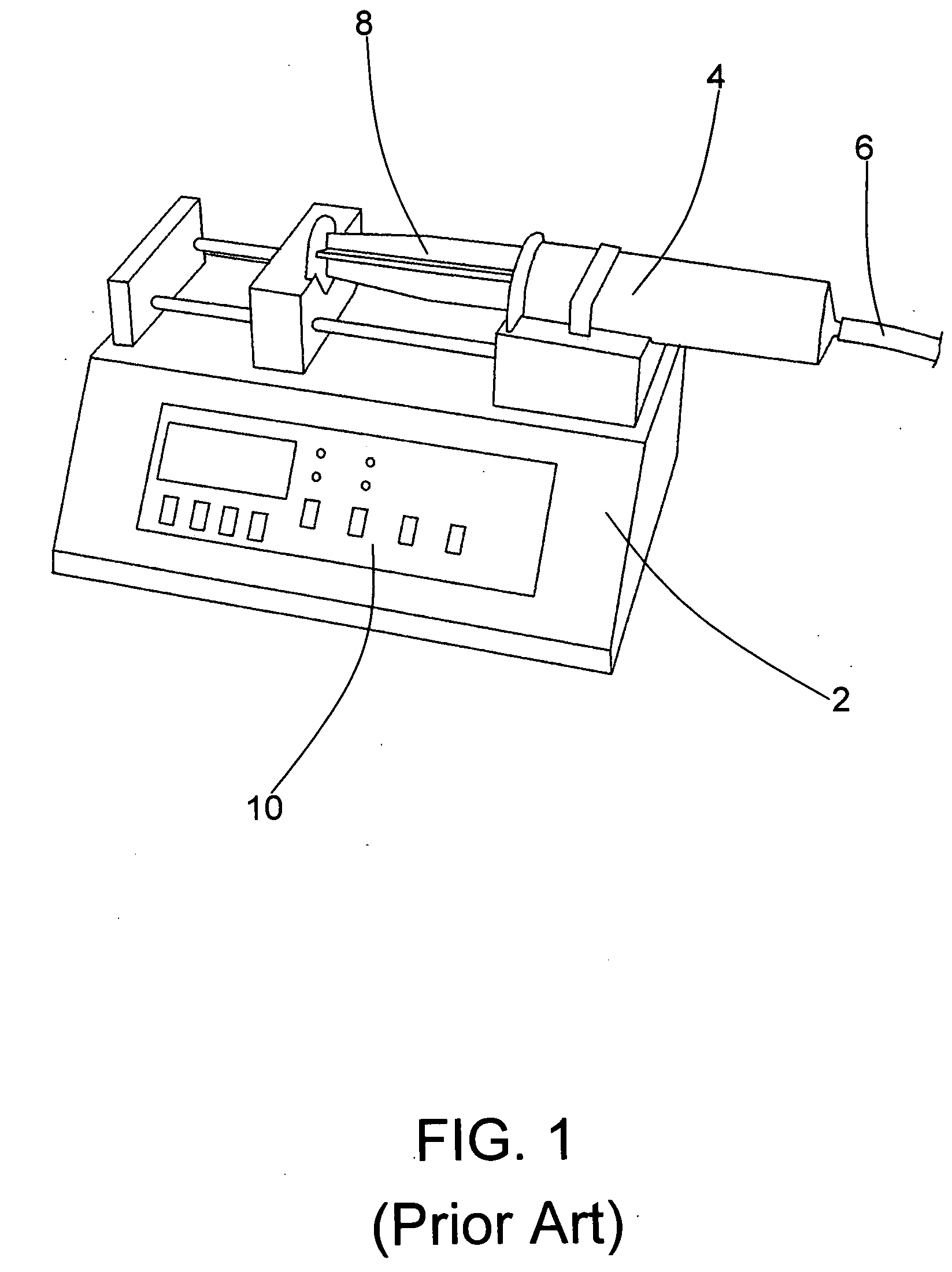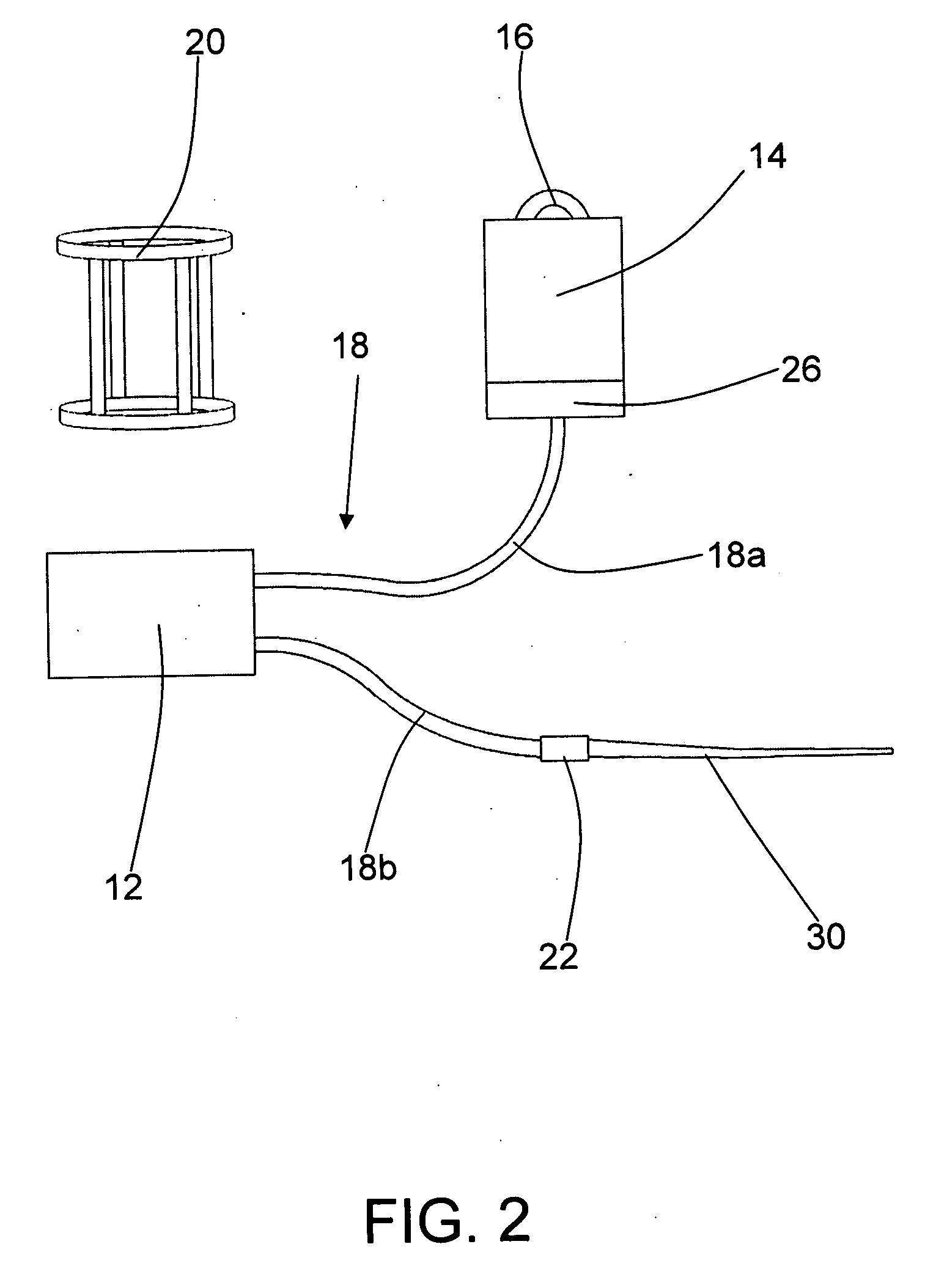Method and apparatus for controlled feeding of an infant
a technology for controlling feeding and infants, applied in the direction of suction devices, medical devices, other medical devices, etc., can solve the problems that most enteral feeding pumps cannot generate sufficient suction on the upstream or inlet portion, and achieve the effect of reducing storage volumes, facilitating use, and ensuring the safety of infants
- Summary
- Abstract
- Description
- Claims
- Application Information
AI Technical Summary
Benefits of technology
Problems solved by technology
Method used
Image
Examples
Embodiment Construction
[0052] The drawings will now be discussed in reference to the numerals provided thereon so as to enable one skilled in the art to practice the present invention. The drawings and descriptions are exemplary of various aspects of the invention and are not intended to narrow the scope of the appended claims. Nor is it suggested that any embodiment of one aspect of the invention must include other aspects discussed herein.
[0053] Turning to FIG. 1, a perspective view of a feeding system known in the prior art is shown. The feeding system uses a syringe pump 2 to provide feeding solution to a neonatal infant. As previously mentioned, syringe pumps 2 are sufficiently accurate and provide a low enough flow rate to be useful for neonatal feeding. Syringe pumps 2 often are, however, expensive. This limits the availability of the pumps 2, inhibiting smaller institutions and individual persons from owning such pumps. Additionally, once the child grows, the child will typically be transitioned ...
PUM
 Login to View More
Login to View More Abstract
Description
Claims
Application Information
 Login to View More
Login to View More - R&D
- Intellectual Property
- Life Sciences
- Materials
- Tech Scout
- Unparalleled Data Quality
- Higher Quality Content
- 60% Fewer Hallucinations
Browse by: Latest US Patents, China's latest patents, Technical Efficacy Thesaurus, Application Domain, Technology Topic, Popular Technical Reports.
© 2025 PatSnap. All rights reserved.Legal|Privacy policy|Modern Slavery Act Transparency Statement|Sitemap|About US| Contact US: help@patsnap.com



